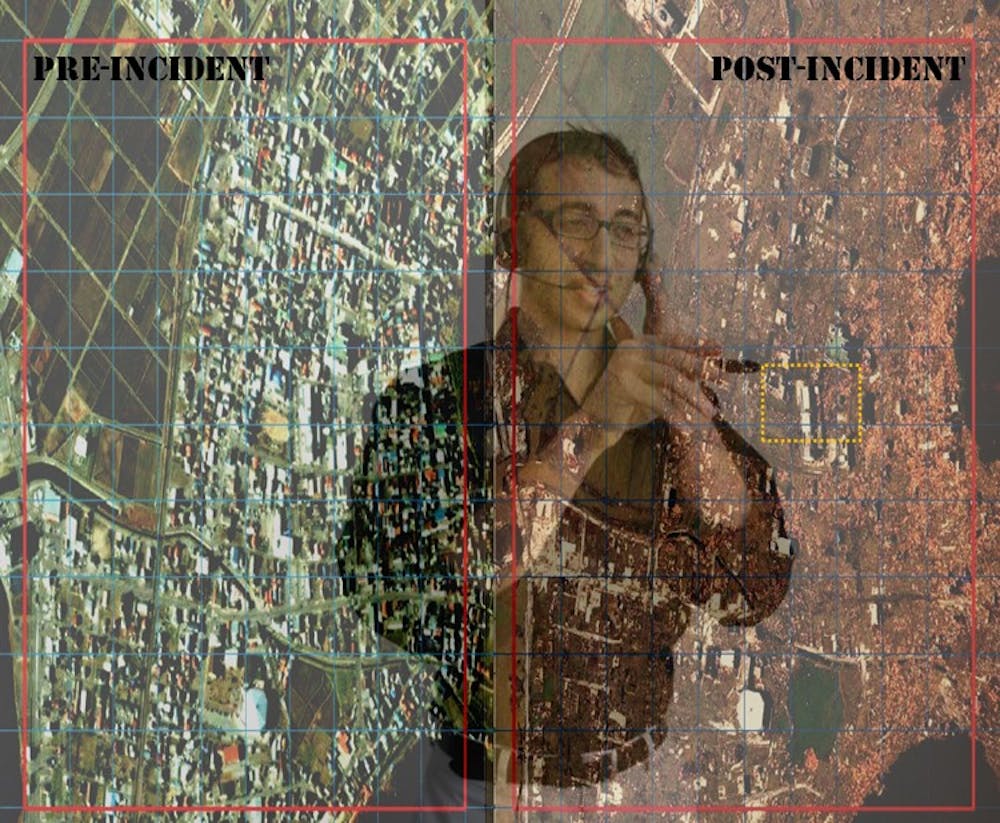When disaster struck in Japan last month, most students were preoccupied with winding down their spring breaks. AU junior Ari Katz, however, got to work.
Katz, a student in the School of International Service, became involved with the U.S. military’s search and rescue operations throughout northern Japan, working with the Air Force to compile and stream crucial data to troops on the ground.
His father, a Homeland Security consultant, worked with Google and Carnegie Mellon University to send data to Japan. He brought his son on as an assistant because of his technical and search and rescue experience with the U.S. Air Force Auxiliary Civil Patrol and volunteer firefighting.
The team provided Misawa Air Force Base in Japan with pre- and post-earthquake high-resolution images and maps of rescue areas, nuclear radiation models and data on road safety and population sizes.
“Our job was kind of to facilitate [intelligence] for the team and make sure they didn’t get killed by the nuclear radiation,” Katz said. “We were able to pull data together and predict where they’re searching, even with the lack of communication … we needed to have an idea of where they’re going and what they’re doing so we would know what to prioritize.”
Because most methods of communication were intermittent or unusable, Katz said he needed to be creative in transferring information to people on the ground in Japan, including trying to use the satellite link of CNN TV cameras to send data.
He also used in-car GPS information from Honda vehicles to map usable roads.
Late nights became early mornings involving Skype calls to Japan, navigating the military’s chain of command and dealing with online firewalls.
“It’s the most difficult when the adrenaline wears off, and it’s 2 a.m., but you still have a mission to do,” he said. “At some point, I realized that if I stop now, it’s going to fall apart. It’s resting on me to get this all together. If I were to tell my team we can’t do this, they would trust me and we’d give up…It’s not like school where you can ask for an extension — this is the real world.”
This is not, however, Katz’s first time helping in an overseas crisis.
In January 2010, he traveled to Haiti with John Travolta’s relief mission to treat victims of the 7.0 magnitude earthquake.
“One thing I learned in Haiti is that helping one person, that’s like the world to them,” he said. “I wasn’t able to save as many people as I wanted [in Haiti] … I’m not naïve, but making a difference in even one person’s life is a big deal.”
With efforts in Japan transitioning to the recovery and assistance phase, Katz is also transitioning back to his usual schedule — one that involves fewer 2 a.m. Skype sessions and more hobbies like photography and basketball.
Katz said he may turn his experiences into a career in emergency management or global security.
“Where I go with this…we’ll see. I have a lot of opportunities,” he said. “I’m pre-med but…I want to affect the world more than one patient at a time. I think really big.”
rkaras@theeagleonline.com





